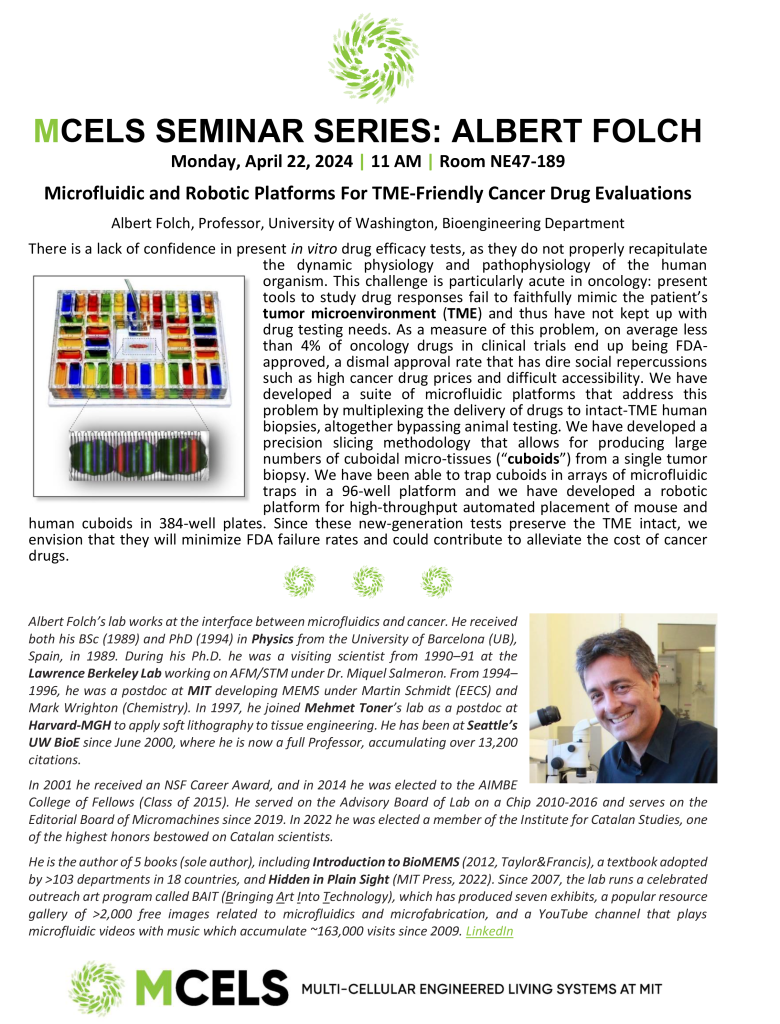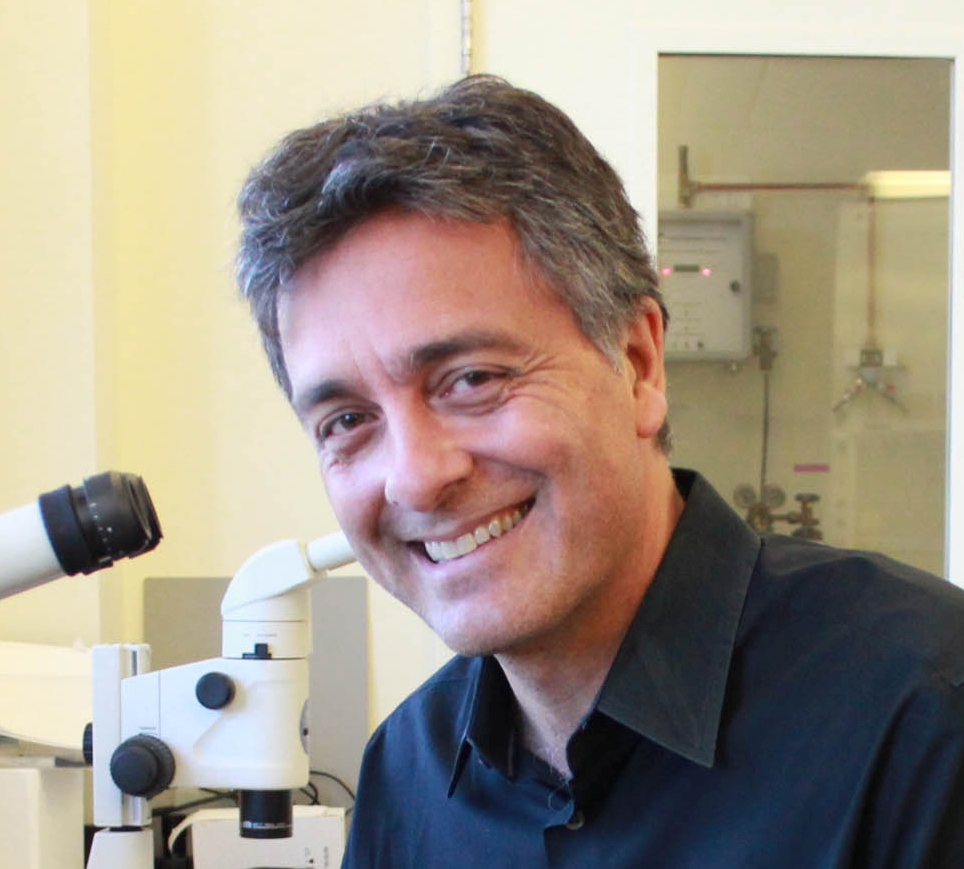April 22, 2024 from 11 – 12 PM EST
Microfluidic and Robotic Platforms For TME-Friendly Cancer Drug Evaluations
Albert Folch, Professor, University of Washington, Bioengineering Department
There is a lack of confidence in present in vitro drug efficacy tests, as they do not properly recapitulate the dynamic physiology and pathophysiology of the human organism. This challenge is particularly acute in oncology: present tools to study drug responses fail to faithfully mimic the patient’s tumor microenvironment (TME) and thus have not kept up with drug testing needs. As a measure of this problem, on average less than 4% of oncology drugs in clinical trials end up being FDA-approved, a dismal approval rate that has dire social repercussions such as high cancer drug prices and difficult accessibility. We have developed a suite of microfluidic platforms that address this problem by multiplexing the delivery of drugs to intact-TME human biopsies, altogether bypassing animal testing. We have developed a precision slicing methodology that allows for producing large numbers of cuboidal micro-tissues (“cuboids”) from a single tumor biopsy. We have been able to trap cuboids in arrays of microfluidic traps in a 96-well platform and we have developed a robotic platform for high-throughput automated placement of mouse and human cuboids in 384-well plates. Since these new-generation tests preserve the TME intact, we envision that they will minimize FDA failure rates and could contribute to alleviate the cost of cancer drugs.
Albert Folch’s lab works at the interface between microfluidics and cancer. He received both his BSc (1989) and PhD (1994) in Physics from the University of Barcelona (UB), Spain, in 1989. During his Ph.D. he was a visiting scientist from 1990–91 at the Lawrence Berkeley Lab working on AFM/STM under Dr. Miquel Salmeron. From 1994–1996, he was a postdoc at MIT developing MEMS under Martin Schmidt (EECS) and Mark Wrighton (Chemistry). In 1997, he joined Mehmet Toner’s lab as a postdoc at Harvard-MGH to apply soft lithography to tissue engineering. He has been at Seattle’s UW BioE since June 2000, where he is now a full Professor, accumulating over 13,200 citations.
In 2001 he received an NSF Career Award, and in 2014 he was elected to the AIMBE College of Fellows (Class of 2015). He served on the Advisory Board of Lab on a Chip 2010-2016 and serves on the Editorial Board of Micromachines since 2019. In 2022 he was elected a member of the Institute for Catalan Studies, one of the highest honors bestowed on Catalan scientists.He is the author of 5 books (sole author), including Introduction to BioMEMS (2012, Taylor&Francis), a textbook adopted by >103 departments in 18 countries, and Hidden in Plain Sight (MIT Press, 2022). Since 2007, the lab runs a celebrated outreach art program called BAIT (Bringing Art Into Technology), which has produced seven exhibits, a popular resource gallery of >2,000 free images related to microfluidics and microfabrication, and a YouTube channel that plays microfluidic videos with music which accumulate ~163,000 visits since 2009.



Comments are closed